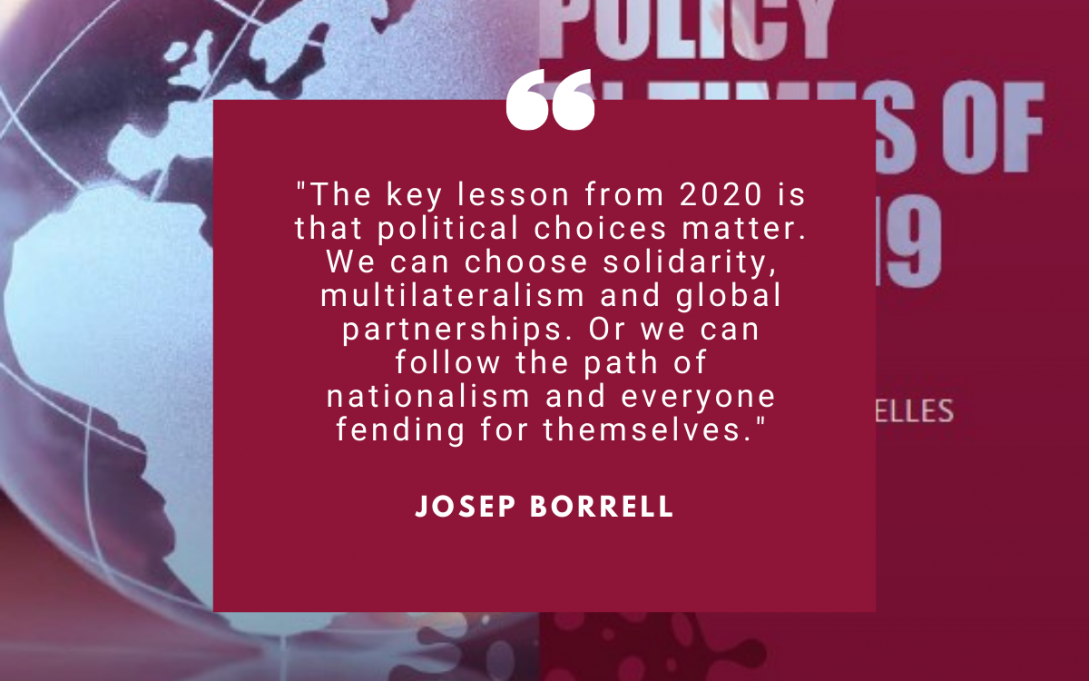Book: European foreign policy in times of COVID-19

Political battles are won or lost depending on how issues are framed. It therefore matters how we analyse the world and describe our policy options. This has been the rationale for writing regularly here on my blog and for other publications, some of them now collected in this book.

The book essentially tells the story of the main events and and developments during my first year in office as HR/VP i.e. until the end of 2020 - some of them unexpected and dramatic – and how the EU has responded. It traces the main stages of the pandemic and the EU’s actions: from the ‘battle of narratives’ and the work on repatriation, to ‘Team Europe’ and the deal on the recovery fund. It also covers the main geo-political trends, from US-China strategic competition to the emergence of ‘new empires’ in our neighbourhood to the weaponisation of interdependence and the rise of disinformation and hybrid tactics.
It sets out what we have been trying to do in a number of pressing conflicts, from Libya and the Sahel, to the Eastern Mediterranean to Belarus and Ukraine, while also detailing our efforts to scale up and modernise our partnerships with Africa, Latin America and across the Indo-Pacific. For anyone interested in EU foreign policy, I hope it gives them a good sense of the nature of the challenges we face but also of the dilemmas and choices involved.
Indeed, if there is one lesson that stands out from 2020 it is that political choices matter. We can choose solidarity, multilateralism and global partnerships. Or we can follow the path of nationalism and everyone fending for themselves. The EU’s choice on this is clear and I hope this book explains why.
At the end of the year, we witnessed the good news of a new US administration, which believes in partnership with the EU and has already demonstrated this in words and deeds. And the arrival of vaccines also means that an end to the pandemic is within reach. But we have also seen that vaccines are being used as geo-political tools, like medical masks were last year (these important developments could not be properly reflected in this book, which covers the year 2020 only).
There is no reduction in the fundamentally competitive nature of the international system and the dominance of power politics. Europeans still have to deal with the world as it is and frame their policies accordingly. The coming months should be the time of delivery and recovery. We need to deliver on our commitments: to EU citizens who want a Europe that protects them and their interests and values and to the wider world, which expects not rousing statements but concrete solidarity and engagement. Both want us to deliver more, faster, better. It is up to us, through our collective choices, to do so.
I hope this book contributes to the debate on shaping Europe’s global role by explaining the choices and the trade-offs we face. Politics is choosing and the future is what we make of it.
This book is available to download as a PDF or an E book here.
MORE FROM THE BLOG

"A Window on the World" - Blog from HR/VP Josep Borrell
Josep Borrell's blog about his activities and the European foreign policy. You can also find here interviews, opinions, a selection of speeches and videos.
